Global affairs / Barcelona
The state of independence
As the issue of Catalan sovereignty remains a point of crisis in Spain, we chart the timeline of that chaotic referendum and what it might mean for other regions seeking to go it alone.
If there was one word that told the story of 2017 it would be sovereignty. Over the past year, restive regions made destructive bids for independence. Nations began the process of breaking away from old friends. Others saw nascent regional rumblings become clear calls for separation. The renewed importance of sovereignty will underpin 2018 too, and so here we have a detailed diary of the events that led up to the Catalan independence referendum in October 2017. It comes courtesy of Stephen Burgen, an author and journalist who has lived in Barcelona since 2001.
The accidental president
If you picked a pivotal moment that led us to where we are now, with the once easy-going Catalans at each other’s throats, businesses fleeing the region, regional autonomy suspended and most of the Catalan government facing charges little short of treason, it would be the day outgoing president Artur Mas put his hand on Carles Puigdemont’s shoulder and said: “You’re my guy.”
No one could have been more surprised than Puigdemont himself. Always a bit of an outsider, he was never quite at ease with the old money and bones families of the Convergència i Unió party that had dominated Catalonia ever since Spanish democracy was restored in 1979.
Puigdemont is a journalist by trade. In 2004 he launched the English-language daily Catalonia Today and appointed me as editor. For him, everything revolves around Catalonia, its culture and history, and its repression by Spain. On his drive to work he used to listen to the right-wing, anti-Catalan cope radio station and would arrive at the office raging at its latest insults. I left the paper after two years, disagreeing with its increasingly pro-independence line. Not long afterwards, Puigdemont’s wife was appointed editor and he went into politics. But anyone who knew him realised he wasn’t really a politician: he was a missionary.
By the time he was anointed, though never elected, as president in 2016, secessionism was politically fashionable. But as recently as 2006, support for secession was a mere 14 per cent and then president Mas dismissed independence as “an antiquated and rather rusty concept”. Six years later support had reached about 44 per cent and Mas had become its messiah, telling Madrid, “We will have our independence, like it or not.” But unlike Mas, Puigdemont isn’t a born-again secessionist. He is something rarely seen in modern politics: a true believer, dedicated since boyhood to the mission of Catalan independence.
By 2012, Spain’s economic crisis, the dismemberment of Catalonia’s statute of autonomy by Spain’s constitutional court and an underlying suspicion of disrespect had pushed the independence movement to centre stage. Its strength has been its ability to mobilise its bases in vast, peaceful and spectacular rallies. Its weakness has been a tendency to hubris and it was through hubris that Puigdemont became the accidental president.
In January 2013, with Mas in charge, the pro-independence coalition initiated what it called “the process”: a series of steps towards a unilateral declaration of independence (udi). From this point it behaved as though its slim parliamentary majority represented a popular majority, ignoring the fact there were as many Catalans opposed to independence as supported it. This proved a fundamental weakness because when it came to the crunch in October 2017, it gave Europe an excuse to side with Madrid.
The first step was to hold a referendum, something that Madrid refused to endorse. In the event some 37 per cent of the electorate turned out to vote on 9 November 2014, with 81 per cent opting for independence.
Dismissing the referendum as “propaganda”, Spain’s prime minister Mariano Rajoy said: “Mr Mas wants to impose a real referendum on me. I’ve already said that is impossible. If he wishes to modify the constitution to abolish national sovereignty he has every right to do so, but he evidently doesn’t have the necessary support.”
This would be Rajoy’s line throughout: the law is the law and the constitution is sacred. Both sides have insisted all along that they are open to dialogue but as one senior government minister puts it: “What is there to talk about? We’re not willing to discuss the break-up of Spain and they don’t want to talk about anything else.”
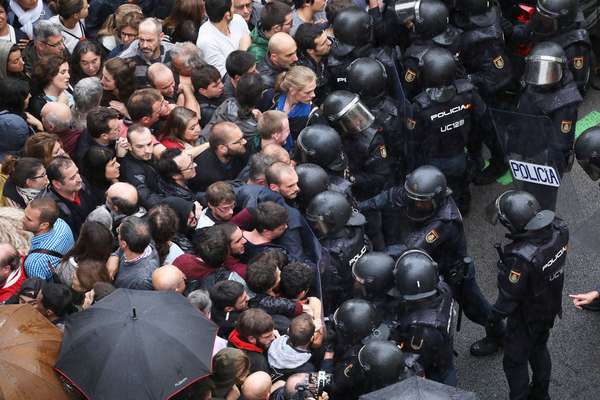
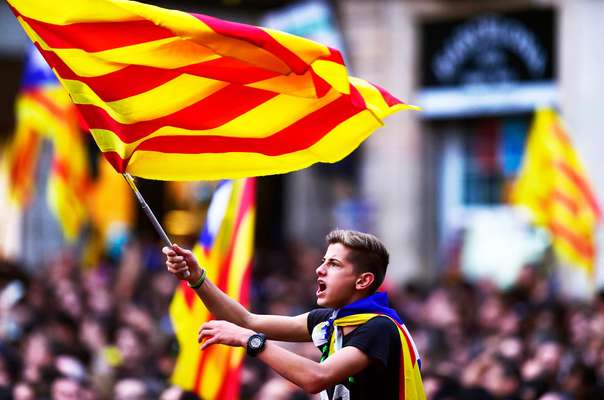
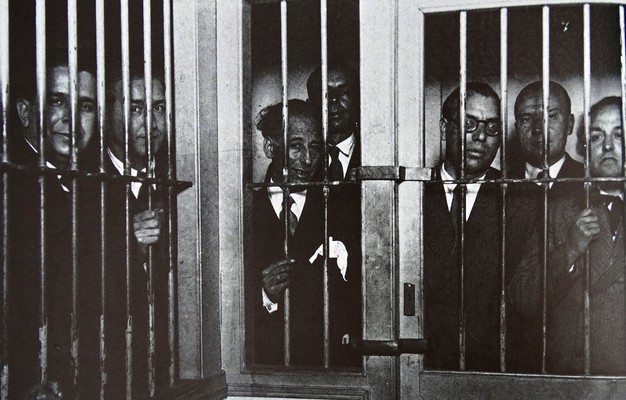
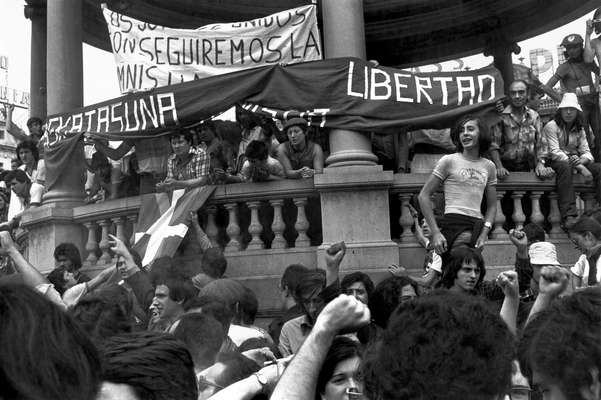
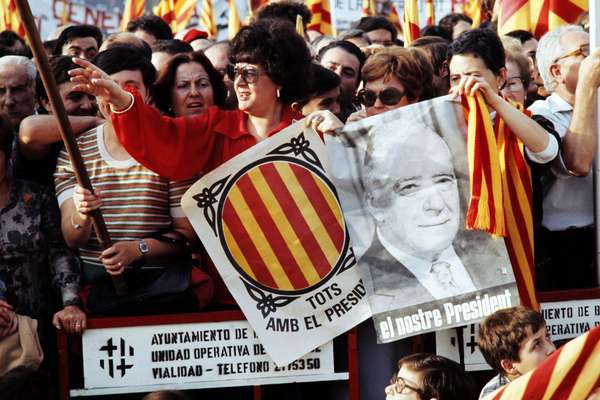
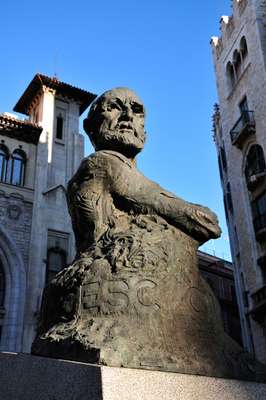


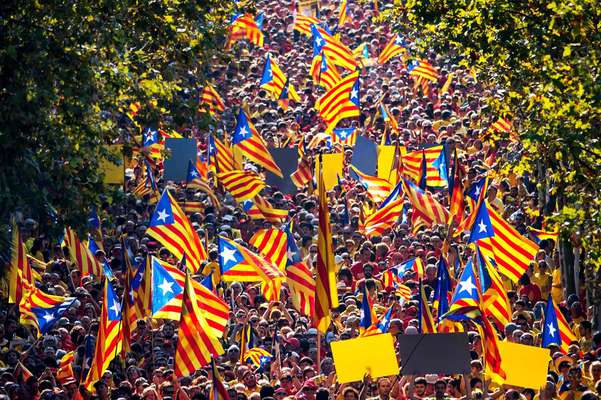
Unlikely bedfellows
Using the referendum result as a springboard, in 2015 Mas called a snap election fought on the single issue of independence. But the plan failed. Between them the pro-independence parties won less than 50 per cent of the vote and Mas and his coalition partner failed to win a majority of seats.
The only way Mas could get a majority was by persuading the pro-independence but anti-capitalist cup (Popular Unity Candidacy) to join his coalition. This the cup was keen to do but not with Mas as leader because of his party’s austerity policies and links with corruption. Anna Gabriel, a cup MP, said, “Mas has nothing to do with the values of the new republic.”
Mas agreed to step aside if a leader acceptable to the cup could be found. That person was Puigdemont, and his conservative government would now govern at the mercy of a tiny radical group with which it had only one thing in common: support for separation from Spain. They were unlikely bedfellows and photo ops of the dour Puigdemont making nice with the cup’s rabble-rousing Gabriel provoked much amusement.
When Puigdemont took power in 2016 he announced that Catalonia would be independent within 18 months. His government set about passing “disconnection laws”, assuming a majority voted in favour in a new referendum scheduled for 1 October 2017. These laws were rushed through parliament without allowing the opposition to comment nor amend them. The laws contravened both Catalonia’s own statute of autonomy and the Spanish constitution, and were immediately struck down by the constitutional court in Madrid.
Each step in the “process” was met with triumphalism by the secessionists and dread by the rest. Divisions deepened, people started falling out with friends, colleagues and family over the issue. Anyone who wasn’t pro-independence learned to button their lip. There was talk of selling up and moving away but where to? There are good reasons why more than a million people from around the world had chosen to live in Catalonia and now the message – from the government and the street – was if you’re not with us, you’re against us. An English friend says that her daughter, born and raised in Barcelona, was told by another child to “piss off home” because she was speaking Spanish in the playground.
The contention of Puigdemont’s government was that Spain was not sufficiently democratic to agree to a binding referendum, as the British government had in Scotland. Catalonia therefore had no option but to go it alone.
Puigdemont’s government continued to impose its agenda, ignoring the 50 per cent of Catalans who didn’t support it. This silent, and increasingly “silenced”, majority failed to find its voice and neither central government nor the Catalan opposition parties made any serious effort to court them.
“The attitude of the non-secessionist sector of society was to not cause problems with friends and family, until things went too far,” says Álex Ramos, vice-president of anti-independence umbrella organisation Societat Civil Catalana. It wasn’t until October, when the scc organised two million-strong demonstrations, that the division of Catalan society was laid bare.
Violence in Barcelona
Rajoy’s government, meanwhile, played its part. Everything it did – stripping Mas and his associates of the right to hold public office, fining them millions of euros for organising the 2014 referendum, banning the 2017 referendum then trying to prevent it by force, jailing senior secessionist figures, dissolving the Catalan parliament, imposing direct rule and then jailing the leading members of the government – served to bolster the secessionists’ narrative of an autocratic, anti-Catalan Spain.
On the morning of 1 October 2017, Rajoy insisted that the referendum wouldn’t take place. Even as it was taking place in the midst of extreme police violence, Enric Millo, Spain’s highest representative in Catalonia, told journalists it wasn’t. But it was and, in a feat of clandestine planning worthy of the French resistance, supporters hid ballot boxes and papers in attics and garages and then delivered them to polling stations that had been occupied overnight.
The police violence was random, extreme and counterproductive. If the idea was to scare people into staying home, it backfired. There had been fairly small queues of voters at Barcelona polling stations but once images of the violence hit TV screens people queued around the block in protest.
The violence in Barcelona stopped abruptly at 13.00. People queued for hours in the rain after the electoral roll website was sabotaged. The only people on the street were secessionists, a few puzzled tourists and riot police. Everyone else stayed home.
Given that Rajoy had dismissed the poll as irrelevant it’s hard to fathom why such violence was unleashed in an effort to stop it taking place. Images of riot police beating civilians and trashing ballot boxes dominated the news for days. It was a PR disaster for Madrid and the best possible result for the secessionists’ portrayal of Catalonia as a colonial victim of brutal Spain.
The result was a foregone conclusion. As in 2014, most No voters didn’t show up. Of the 2.3 million of 5.3 million eligible voters who cast their ballot, 90 per cent voted Yes, while organisers claim 770,000 votes were lost due to disruption. Close to 900 people were injured in the process.
Two days after the referendum, King Felipe VI of Spain addressed the nation. He didn’t mention the violence and castigated the Catalan leaders for “scorning the affection and sense of solidarity that have united, and will continue to unite, the Spanish people”. To people in Catalonia this wasn’t the king speaking: it was the government.
Things then moved quickly, if unpredictably. Illegal or not, Puigdemont had his mandate. On 10 October he declared Catalonia was an independent republic and then seven seconds later suspended the republic so negotiations could take place. But these negotiations were not to be. Rajoy gave Puigdemont a series of deadlines to confirm or deny that he had declared a republic, saying a failure to do so would lead to direct rule from Madrid.
Under pressure from a nervous old guard led by Mas, Puigdemont called elections to stave off direct rule. When news of this leaked out and colleagues began denouncing him a traitor, he backed off and allowed the secessionists to use their narrow majority to declare independence. An hour later, direct rule was imposed.
Puigdemont and six of his cabinet fled to Brussels and a few days later the remainder were remanded in custody on charges of sedition, rebellion and embezzlement. “We have been stripped of office in an illegal coup d’état,” Puigdemont told a news conference in Brussels. Madrid had earlier condemned the Catalan udi as a coup d’état.
Issues of independence
Lessons should be learned from this unedifying and ultimately fruitless experience. The independence movement was guilty of haste and hubris. If you only associate with like-minded people you can deceive yourself that everyone thinks as you do. Attending one of the huge rallies, it was easy to believe everyone wanted independence because those who didn’t stayed away. Now Catalan leaders admit that they were too hasty and lacked the support of the majority.
Others with dreams of independence, such as Flanders and Lombardy, take note: the EU will not rally to your cause. At every stage Europe has sided with Spain, to Puigdemont’s surprise and chagrin. EU leaders don’t want the community to splinter and member states such as France and Italy, mindful of their own internal divisions, shunned Catalan pleas for support.
The Spanish government called for Catalan elections on 21 December and the restoration of regional autonomy. Whatever the result, as long as the Catalan question remains unanswered, Spain’s constitutional crisis will not be resolved. For that to happen Madrid has to be open to dialogue and accept it can’t use the courts to solve a political problem.

The Québec question
Why Canada’s French-speaking province has resisted all calls to strike out on its own.
In autumn 1995, as Québec was getting ready to vote for a second time on its secession from Canada, provincial premier and separatist Jacques Parizeau secretly arranged for the province’s public financial institutions to set aside ca$17bn. This was to be used to compensate any sell-off of Québec bonds following a secessionist victory.
The money was never spent as the separatists lost (by a razor-thin margin) but the anecdote is telling. Some Québécois “sovereignist” leaders knew that a favourable vote was only the beginning of the road to independence and that this road would be fraught with obstacles.
The business elite of Québec have always been against separation, fearing the economic shock of such radical change. They point to the exodus of tens of thousands of English-speaking Québeckers after the Parti Québécois gained power in 1976. They also lament the loss of prosperity and economic influence suffered by Montréal to the benefit of Toronto during four decades of political uncertainty generated by the separation debate.
The Québécois are a minority in their country and this carries with it legitimate frustrations. However, Canada is one of the world’s wealthiest, fairest and freest countries. Scenes of police forces disrupting a referendum or jailing members of a regional government are unimaginable. Whatever their grievances, Québécois know they are lucky to live in such a country. This is why, although they have been tempted, in the end they have always rejected a project which would be much costlier and trying than its proponents claim… publicly.
André Pratte is a Canadian senator and a former journalist.
Split decisions: more restless regions
1. Basque Country: The violent campaign ended years ago but the dream of independence hasn’t. Thousands of Basques supported Catalonian independence and are keen for their own referendum.
2. New Caledonia: One of France’s overseas territories in the Pacific, New Caledonia is holding an independence vote in 2018.
3. Flanders: The mainly Dutch-speaking region in north Belgium aims to push for further gradual devolution after 2019’s elections.
4. Lombardy & Veneto: In these economic powerhouse regions of Italy, more than 90 per cent cast their vote for more autonomy in a non-binding referendum in October.
5. Autonomous Region of Bougainville: A poll on independence from Papua New Guinea is set be held in this part of the Solomon Islands before 2020. There is concern the vote will lead to violence.


